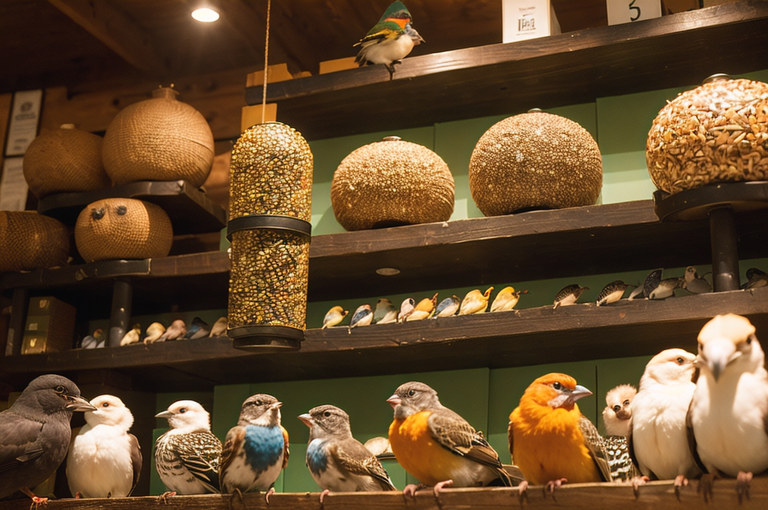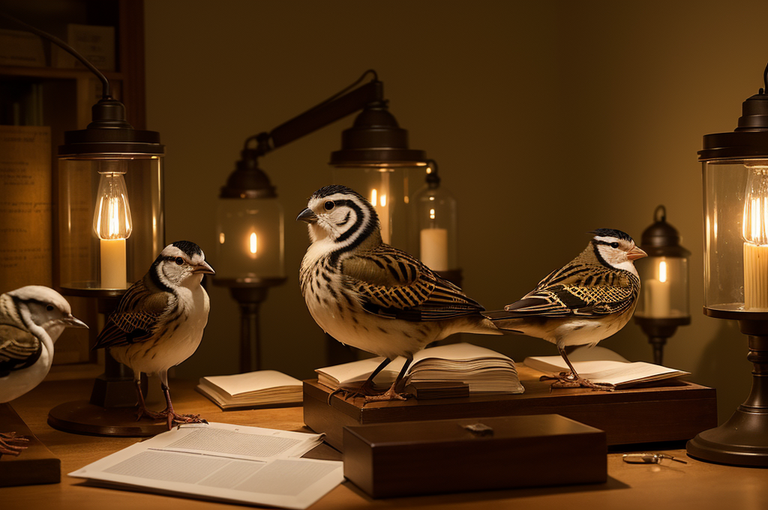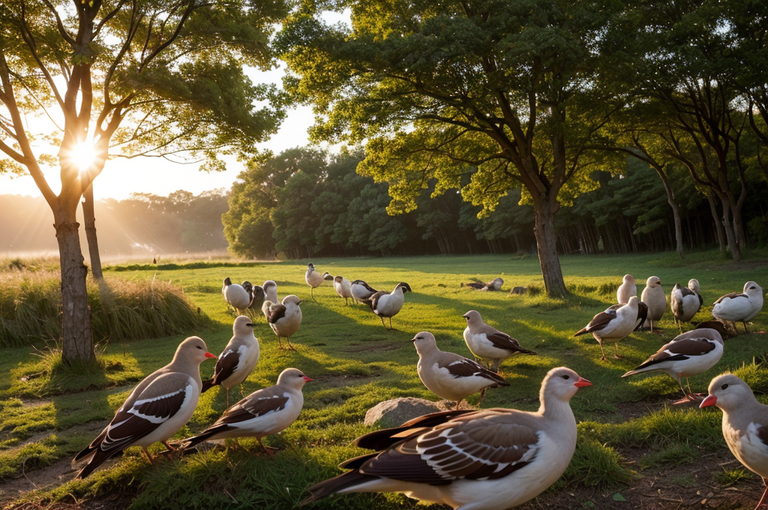The Comprehensive Guide to Proper Bird Feeding: From Quality Seeds to Cleaner Feed Stations

This article provides information about the importance of proper bird feeding practices, including understanding bird seed quality, ideal bird food mix, feeder types, feeding station locations, cleanliness, and provision of clean water.
Understanding Bird Food
In my many adventures observing and understanding the avian world, an essential lesson learned is the pivotal role food plays in shaping our feathered friends’ lives. Embarking upon the wild bird rescue fort worth expedition, it was quite an eye opener experiencing the impact of providing optimum nutrition to these airborne wonders.
Importance of Quality Bird Seeds
Ensuing from my early morning explorations and meticulous notations, I discerned that quality bird seeds are vital for preventing wastage, bacterial growth, potential rodent infestations, and misleading pricing. I realized the sheer sense of responsibility we bear in ensuring these winged creatures consume only the best.
Birds’ Preferred Food
Acquainted with various types of birds, from the purple martins in the backyard to the magnificent Alaskan eagles, my experience has revealed that birds favor mixed seeds. These primarily consist of generous quantities of sunflower seed, cracked corn, white proso millet, and peanut hearts. The secret to their health often lies in the simplicity of their diet, a truth we often overlook in our quest for complexity.
Harmful Feeds to Avoid
As captivating as it is to observe these airborne creatures, it is equally vital to shield them from potential harm. Toxic feeds such as rods, filler seeds, chocolates, crisps, and sweets pose grave risks to birds’ health and wellbeing. As caretakers of nature, we need to be mindful of what we provide our winged companions.
Cracking the mystery of bird food has been an intriguing process, much like the enchanting creatures themselves. As we continue to provide these birds with sustenance, we also need to remember our duty to protect them from harm, preserving their mystifying beauty and whimsical calls for generations to come.
Location and Maintenance of Feeding Stations
As an ardent observer and advocate for our feathery friends, I’ve always insisted on a special attention to where and how we set up feeding stations. Here, my friends, is where the phrase what do wild birds like to eat comes into play in a larger context. It’s not just about the food, but rather, how and where it’s served.
Ideal Location for Feeders
The secret lies in conscientiously orchestrating a feeding station near protective cover. Much like our instinctual preference for a cozy, secure dining atmosphere, birds too, seek a haven from predators while they feast. Naturally, giving a thought to their sense of security, infuses the kind of camaraderie that continues to make our interactions with birds a beautiful, mutually beneficial relationship.
Necessity of Cleanliness
Speaking of relationships, there’s responsibility involved in ours with these winged wonders. That primarily entails maintaining cleanliness in our feeding areas. Meticulously checking for mold in uneaten food and diligently cleaning feeders and water dishes aren’t just habits they are an absolute necessity. After all, preventing the spread of disease is as vital as providing nourishment.
Variety of Bird Feeders
And of course, let’s not forget the variety. As adventurous as my birdwatching exploits may be, I’ve come across a delightful array of bird feeders. From pre filled ones and empty feeders to those with stands and even squirrel proof feeders, the assortment is truly an avian marvel. Diversity, my dear readers, also weaves its magic in feeding stations and remains a delightful part of our endeavors to welcome and nourish a delightful array of wild birds.

Importance of Feeding Birds Throughout the Year
One marvelous facet of bird life that I’ve grown to appreciate deeply is the necessity for feeding birds all year round. The reason does not merely stem from a sense of compassion, but is rooted, rather firmly I may add, in the understanding of their intricate biological needs.
Need for All Year Round Feeding
Ah, the beautiful diversity of changing seasons, each offering its own unique palette of challenges. Providing our feathered friends with consistent sustenance, irrespective of the season, ensures that they are better equipped to thrive in their distinct environments. The act of feeding wild birds in winter is equally as important to their survival as it is in warmer seasons.
Special Nutritional Needs in Winter
As the days shorten and the icy breath of winter whispers through the trees, our avian companions face a struggle for survival that many of us may struggle to comprehend. The key to easing their winter plight can be found in providing them with high calorie food. A hearty feast can be a pivotal lifeline, energizing them against the frigid onslaught and bolstering their endurance.
Bird Feeding in Summer
Come the embrace of a warm summer, my focus shifts to quenching their thirst and allaying their nutritional needs. An inviting offering of succulent fruits and a plentiful smattering of seeds can do wonders to enhance their health and vitality. Remember, hydration is as essential to birds as it is to all life forms. Our careful interventions can notably increase their survival odds, while simultaneously affording us enchanting insights into the captivating rhythm of their daily lives.
In the grand tapestry of nature, every thread performs a vital role. As loving guardians and respectful observers of this tableau, our duty is to ensure the continuity of this extraordinary balance. Let us then, be generous and consistent in feeding our wild birds throughout the year and derive immense satisfaction from our humble contribution to their survival. Our feathered allies will thank us in their own special ways, making a beautiful symphony of songs and performances for us to marvel at every day, every season.
Grasping the Gravity of Giving Birds Pristine H2O
Birds bathing, sipping, and chirping merrily in my birdbath there’s no sight more heartwarming. But the utmost joy I gain from luring in my feathered friends at the fat robin wild bird and nature shop does not downplay the responsibility I have to provide them with clean, refreshing waters, especially during the summer months.
Appreciating the Vitality of Water
Water for birds is not just for their simple Bartlett like frolicking and dipping, but is crucial for their survival. This summer, you might notice birds dipping their plumage more frequently in water sources or going in for more gulps than usual. Hydration becomes their weapon against the scorching heat and they become heavily dependent on it.
Timely Replacement of Water
Ah, the rejuvenation of fresh water! The need for changing water routinely is not just about keeping it trough like fresh for our winged guests, but also curbing the potential spread of avian diseases. An unchanged birdbath could breed unwanted parasites and health hazards, a risk none of us wish to take on these innocent creatures.
Extra Care during Summer
Now, if you remember those sweltering summer days when you craved that extra glass of chilled water, then you can imagine what these little creatures must be going through. Summer makes their dependency on regular water changes even more paramount. They depend on us, the bird loving community, to step up and alleviate their discomfort.
As the songbird relies on high quality Food and clean water sources for its survival, so does it echo an underlying need for vigilance and commitment from each of us. Just as a bird doesn’t just sing, it is our duty, not just for the sake of birdwatching, but for the undeterred survival of these splendid creatures.
Key Takeaways
When you embark on the journey of catering to the avian world, from taking part in wild bird rescue operations in Fort Worth to the simple act of feeding the robins and chickadees in your backyard, a certain kind of knowledge and care is needed.
Bird Food Quality and Choices
A single sunflower seed holds a treasure trove of calories for a bird, yet not all seeds are created equal. The species that grace your home landscapes do reveal their preferences, disclosing what wild birds like to eat. As I’ve observed early in the morning, cardinals favor safflower seeds while finches are partial to Nyjer seeds. The bustling ecosystem found in a single feeder is as diverse as a banquet. A thoughtfully stocked feeder, much like The Fat Robin Wild Bird and Nature Shop possesses, can anchor a thriving bird community. However, one should always introduce a new seed variety gradually fickle taste buds inhabit even the smallest of birds.
Feeders Maintenance and Positioning
Just as the fairest flowers in our gardens need regular attention and care, so too do the avian ambassadors. Cleanliness of bird feeders and consistency in topping up the seeds are vital. Furthermore, these oases should be placed with measured precision. The safety of our feathered visitors soars when feeders are positioned near protective cover a bush, a tree, a pillar providing an invaluable retreat in moments of danger.
Year-round Feeding and Hydration
Feeding wild birds in winter, just as much as in other seasons, is a labor of love that requires understanding and persistence. I’ve often noticed that our feathered friends rely on us the birds’ diets can turn scarce when the chill descends. Thus, a continuous supply of seeds and a drinking source that isn’t ice can make a tangible difference in their struggle for survival. Remember, seed varieties and fresh water are natural lures for them, around which the heart of bird activity tends to revolve.
Whether guiding a lost bird back to the sky or placing a seed in a feeder, every action we take ripples into the wild, shaping and preserving the avian world. So, venture forth with eagerness, as every day presents a new opportunity to tune into the birds’ enchanting chorus, resonating with the echoes of nature’s purest song.


